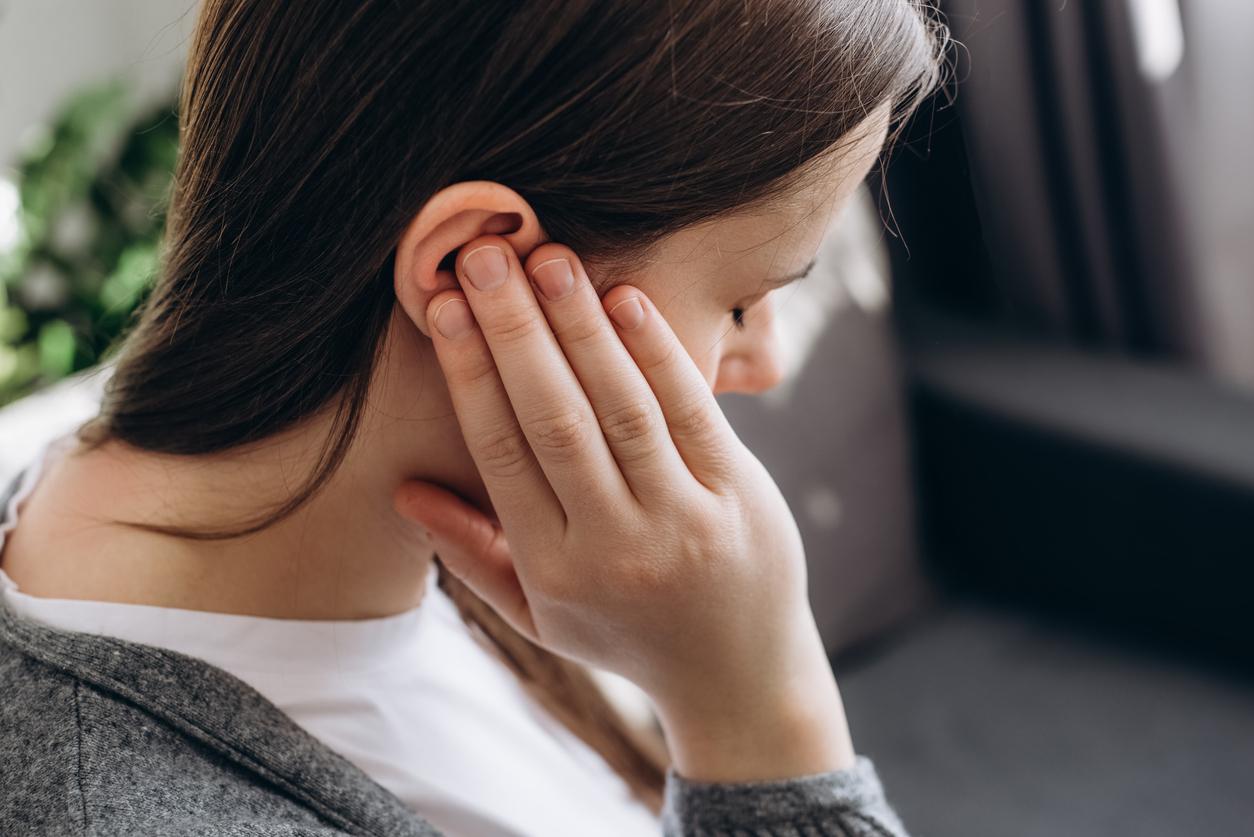What if mindfulness meditation helps you live better with ringing in the ears? According to a new study, this cognitive therapy is particularly effective in limiting tinnitus and thus improving quality of life.

Generally a simple temporary and occasional annoyance, tinnitus or ringing in the ears characterizes the auditory sensations (hissing, crackling, buzzing, rustling, crackling, etc.) which are not caused by an origin or external noise.
Affecting on average 1 in 4 French people during their lifetime, these parasitic auditory perceptions can also unfortunately become permanent, which greatly affects the quality of life since it can be the source of emotional stress, cause insomnia, problems auditory perception as well as concentration disturbances. This discomfort is all the more important since there is currently no treatment against tinnitus.
One technique, however, seems to be proven to reduce ringing in the ears: mindfulness meditation.
MBCT, an effective treatment
According to a new study conducted by British researchers and the results of which have been published in the journal Ear and Hearing, mindfulness meditation would be an effective way to reduce tinnitus over the long term, making it less severe, intrusive and bothersome.
Many clinics specializing in the treatment of tinnitus were already using relaxation techniques to gain quality of life. “We compared Mindfulness Based Cognitive Therapy (MBCT) to Sophrology, a traditional treatment for people with chronic tinnitus, to determine if MBCT was a better option than current recommended practice, ”says study author Dr Liz Marks, University of Bath Department of Psychology.
In total, 75 patients participated in the clinical trial by following MBCT sessions or relaxation therapy to reduce the severity of tinnitus and thereby decrease the psychological distress, anxiety and depression associated with it. At the same time, the effectiveness of mindfulness has been tested on 182 patients with chronic ringing in the ears.
The results are final. “Treatment with MBCT led to significantly greater reductions in the severity of tinnitus than relaxation treatment, and this improvement lasted longer,” says Dr. Marks.
His team studied the effect of mindfulness on 182 patients with ringing in the ears, which constitutes “the largest sample of patients with chronic tinnitus to date.”
Accept tinnitus rather than fight it
Developed in the late 1970s by Jon Kabat Zin, doctor of molecular biology from the prestigious Massachusetts Institute of Technology (MIT), mindfulness meditation consists of intentionally paying attention to internal experiences (sensations, emotions, thoughts, states of mind). spirit) or external ones of the present moment, without making a value judgment.
In the case of tinnitus, it is not a question of trying to “fight” or “repel” them, but on the contrary to “accept” them in order to live with them better. Mindfulness is not intended to change the nature or sound of tinnitus, but therapy can make the tinnitus less intrusive, to the point where it is no longer a problem.
“MBCT is transforming the traditional treatment for tinnitus. Rather than trying to avoid or mask noise, it teaches people to stop the battle with tinnitus,” explains Dr. Marks. “The mindfulness approach is radically different from what most people with tinnitus have tried, and it may not be right for everyone, but we are confident that the growing research base demonstrates how it is. may offer an exciting new treatment. We have found that traditional treatment has not yet been able to help them and we hope that the results of our research will be one of the first steps towards the wider adoption of MBCT. . “
.

















